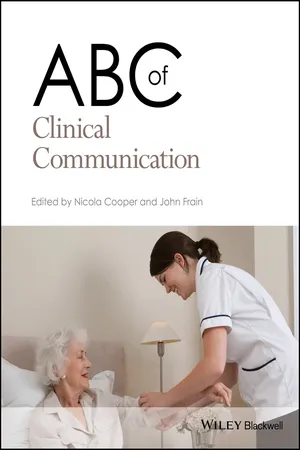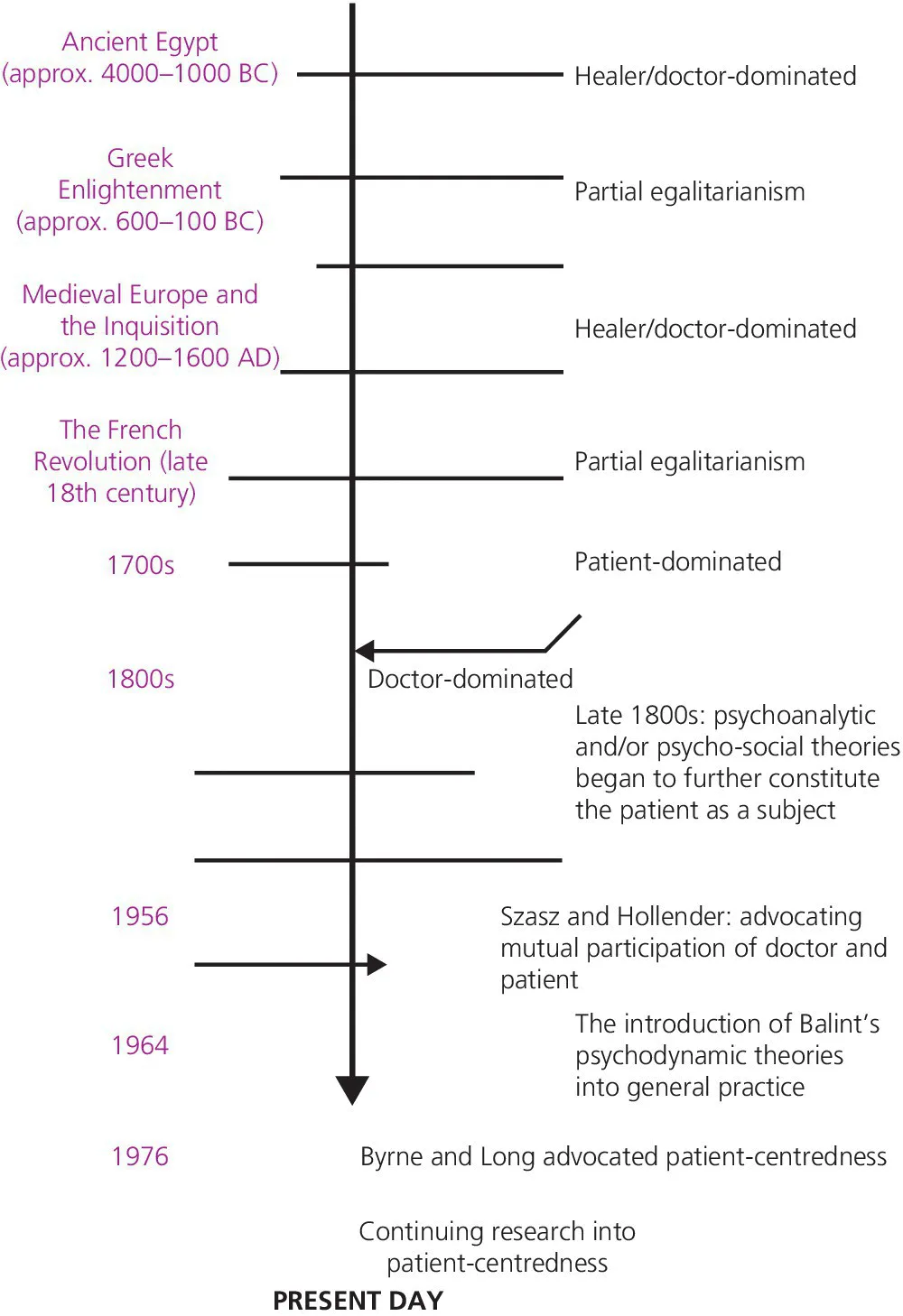
- English
- ePUB (mobile friendly)
- Available on iOS & Android
ABC of Clinical Communication
About this book
Clinical communication underpins safe patient care. The effective health professional sees illness through the patient's eyes and understands what matters most to him or her. Effectiveness means gathering hard clinical data about the physical changes affecting the patient, understanding why the patient is concerned, conveying this to other health care professionals and involving the patient at every stage of management decisions.
The evidence for good clinical communication is well established, although there are challenges. While listening is the basis of sound diagnosis and clinical reasoning, its absence affects patient outcomes particularly when patients are not permitted to make their concerns known or when there are gaps in information flow or communication between the professionals caring for them.
The ABC of Clinical Communication considers the evidence pertinent to individual encounters between patients and their health professionals, how to achieve efficient flow of information, the function of clinical teams and developing a teaching programme. Topics covered include:
- The consultation
- Clinical communication and personality type
- Shared decision making
- Communication in clinical teams
- Communication in medical records
- Communication in specific situations, including mental health and end of life
- Teaching clinical communication
The chapter authors are clinicians involved in communicating with patients, research and training healthcare professionals of the future. This team reflects the multidisciplinary approach required to develop effective clinical communication.
Frequently asked questions
- Essential is ideal for learners and professionals who enjoy exploring a wide range of subjects. Access the Essential Library with 800,000+ trusted titles and best-sellers across business, personal growth, and the humanities. Includes unlimited reading time and Standard Read Aloud voice.
- Complete: Perfect for advanced learners and researchers needing full, unrestricted access. Unlock 1.4M+ books across hundreds of subjects, including academic and specialized titles. The Complete Plan also includes advanced features like Premium Read Aloud and Research Assistant.
Please note we cannot support devices running on iOS 13 and Android 7 or earlier. Learn more about using the app.
Information
CHAPTER 1
Why Clinical Communication Matters
OVERVIEW
- The clinical interview is essential in collecting information about a patient and reducing diagnostic error.
- There is an evidence base for the skills that best facilitate collection of both the biomedical and psychosocial content of the patient’s story.
- Good clinical communication underpins patient‐centred care.
- Health professionals require continuing training in clinical communication in all its forms.
- Efficient information flow within the healthcare team is an essential component of patient safety.
- Respect for patients and colleagues is a prerequisite for effective clinical communication.
Clinical communication – a historical perspective

Box 1.1 The traditional model of a structured patient history
- Demographics
- Presenting problem(s)
- History of presenting problem(s)
- Past medical history
- Systems enquiry
- Family history
- Medications and allergies
- Social history
- Correctly diagnose the patient’s illness.
- Avoid diagnostic error.
- Give the patient effective and appropriate treatment.
- Achieve the patient’s adherence to treatment.
- Cure or mitigate the effect of the illness.
- Improve the patient’s health status.
- Communicate care, concern and empathy.
Box 1.2 Clinical hypocompetence in the medical interview
- Lack of therapeutic intent
- Inattention to primary data (symptoms)
- A high control style
- An incomplete database usually omitting patient‐centred data and active problems other than the present illness
- A thoughtless interview in which the physician fails to formulate needed working hypotheses
Table of contents
- Cover
- Title Page
- Table of Contents
- Preface
- Contributors
- CHAPTER 1: Why Clinical Communication Matters
- CHAPTER 2: The Consultation
- CHAPTER 3: Communication and Personality Type
- CHAPTER 4: Shared Decision‐Making
- CHAPTER 5: Communication in Clinical Teams
- CHAPTER 6: Communication in Medical Records
- CHAPTER 7: Advanced Communication for Specific Situations
- CHAPTER 8: Communication and Mental Health
- CHAPTER 9: Communication at the End of Life
- CHAPTER 10: Teaching Clinical Communication
- Recommended Books, Articles and Websites
- Index
- End User License Agreement